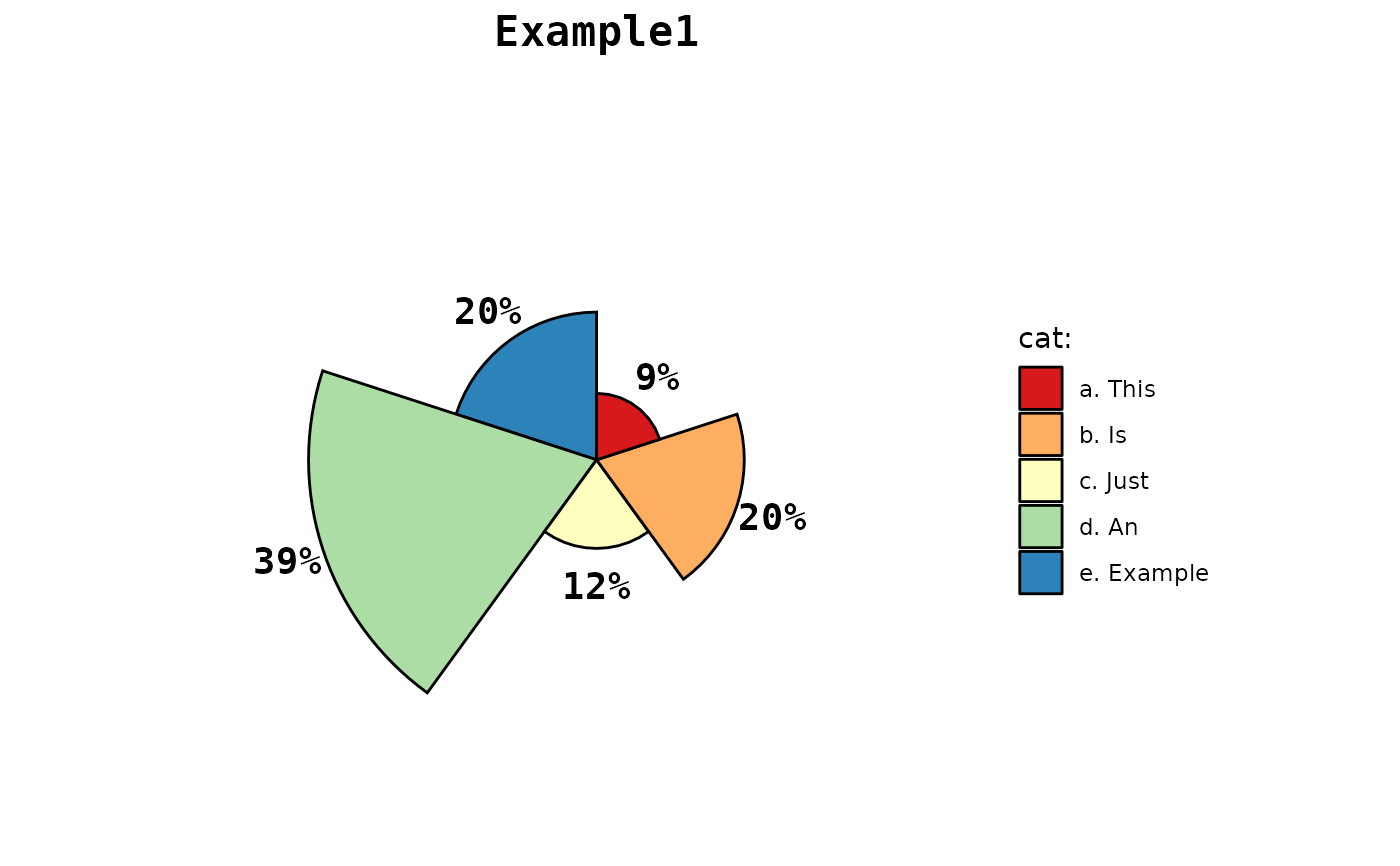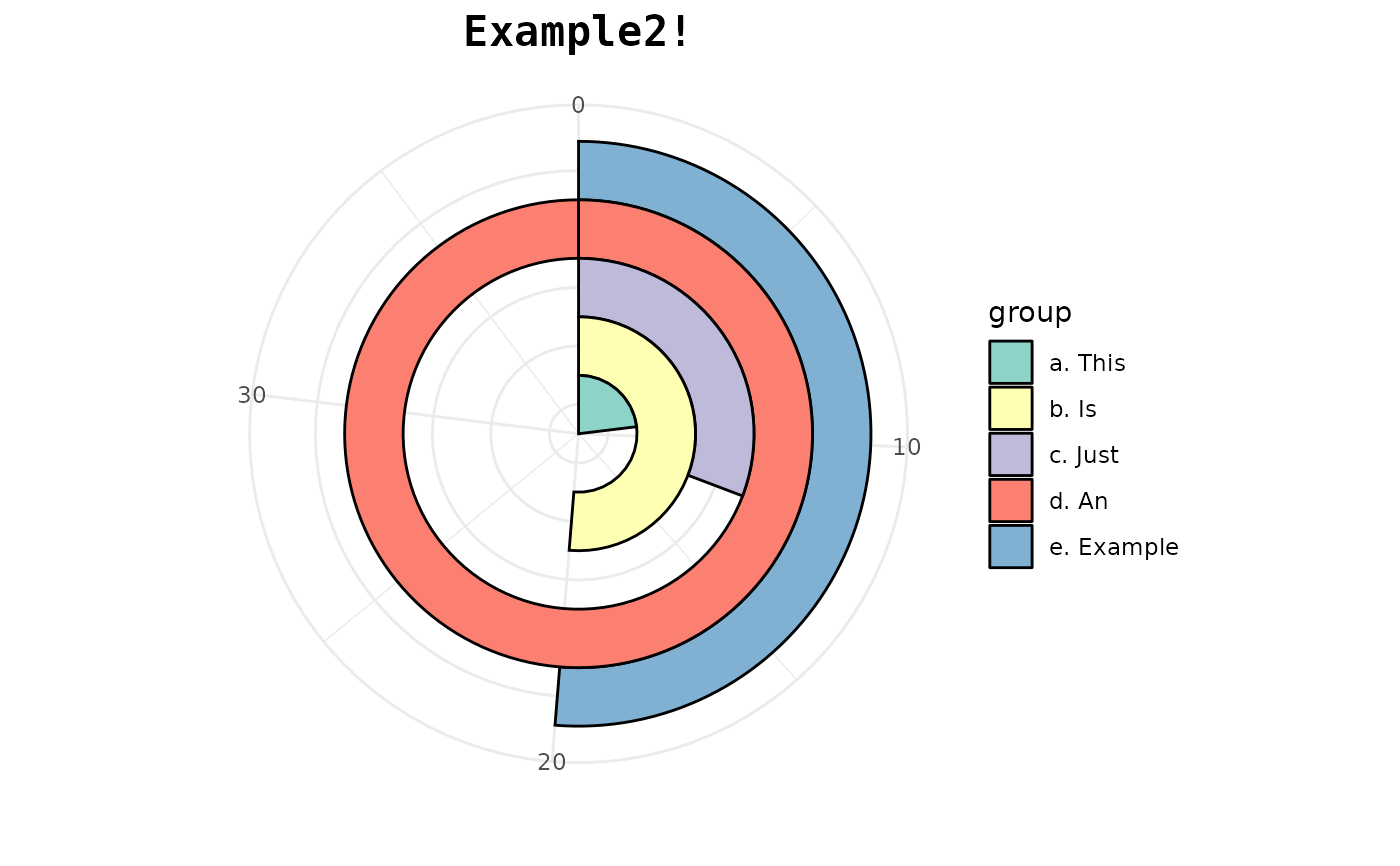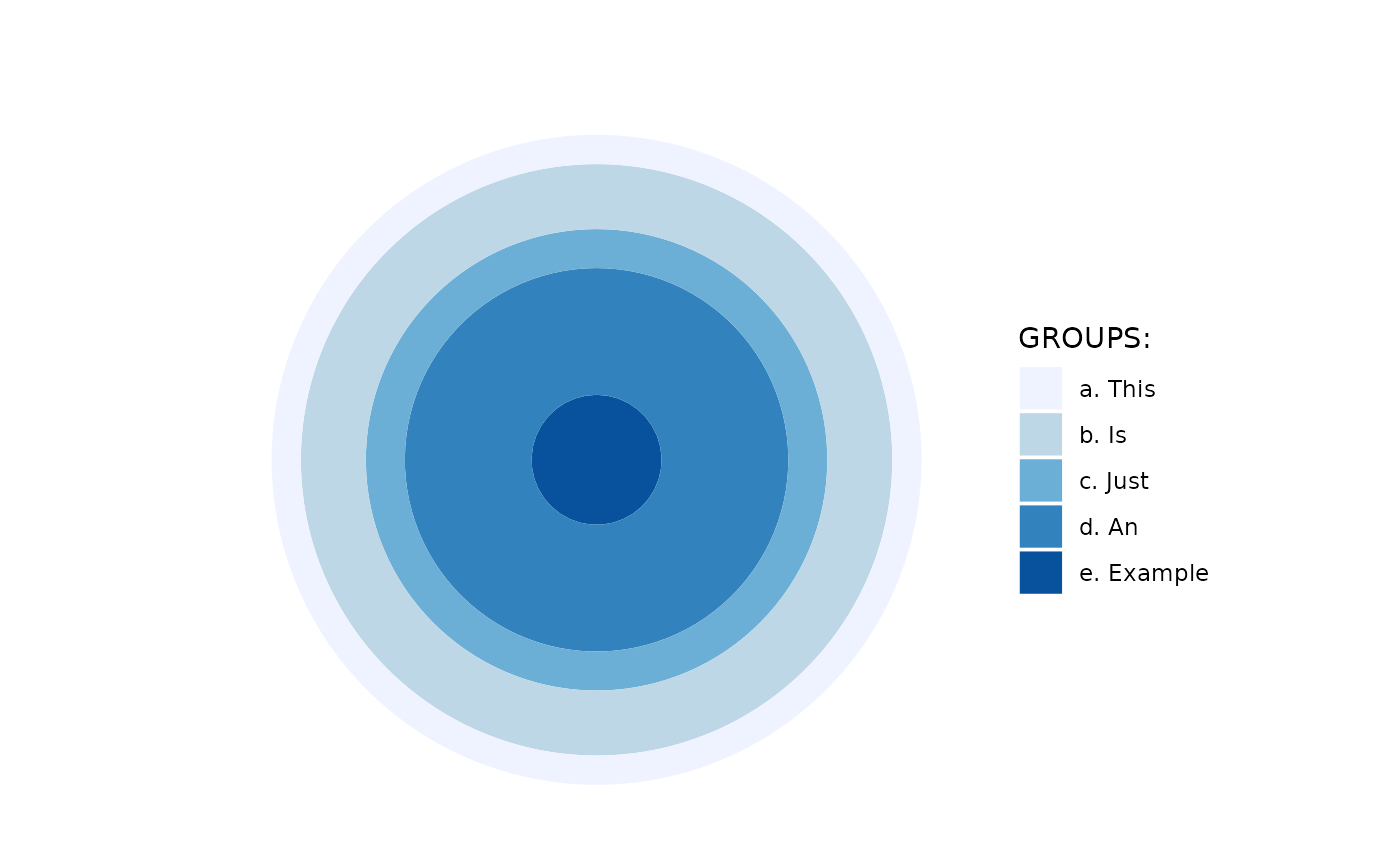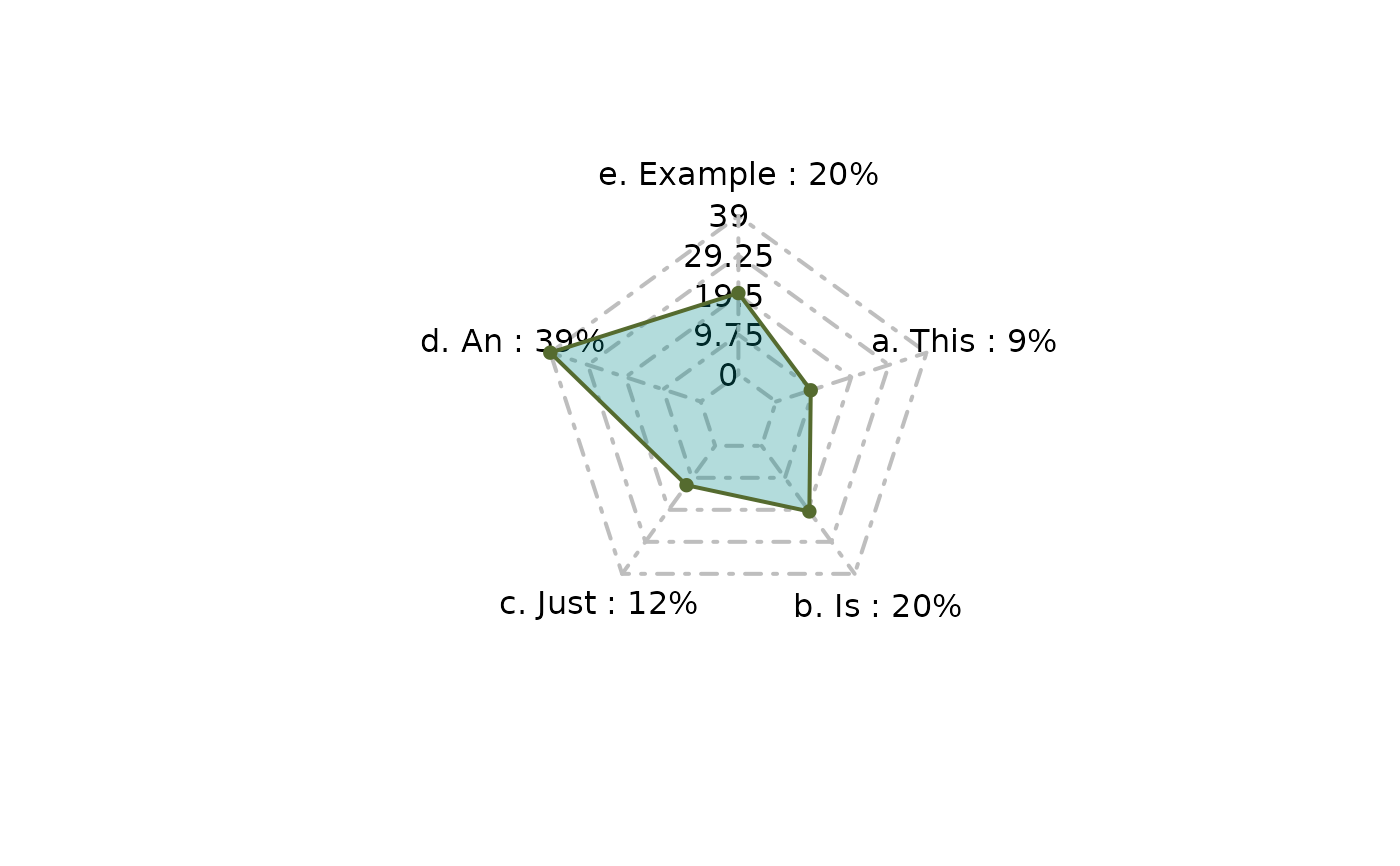This function allows you to create cool pie charts easily by providing just
the data and a template among the available ones. Moreover, you can optionally
specify a title for the chart and a name for the categories.
Using this function you can create some complex and extravagant pie charts.
If you are looking for something more classical (and probably more understandable),
check out the pie_bake function.
pie_bake_pro(data, template, group_name = "group", title = "")Arguments
- data
A data frame (or a tibble) with two variables (columns):
in the first one there must be the vector of labels;
in the second one there must be the vector of values.
Please note that the labels are automatically sorted in alphabetical order. If you want to specify a particular order, it is recommended to type numbers or letters before the category names (e.g. "a. category1", "b. category2", ...).
You can usepie_datacheckto understand if the data is suitable.- template
The chosen template.
Typepie_template_list_proto display all the available ones for this function.- group_name
A string. If you want, you can specify a name for the categories.
- title
A string. If you want, you can specify the title of the graph.
Value
A ggplot object (or no value if the chosen template is among the spider chart ones). In particular, this function returns a pie (or similar) chart according to the data, the choice of template, and the other specifications provided.
See also
See all the available templates displayed here!
Examples
example <- data.frame(
c("a. This", "b. Is", "c. Just", "d. An", "e. Example"),
c(2.9, 6.9, 4.20, 13.12, 6.66)
)
pie_bake_pro(
data = example,
template = "eaten3",
group_name = "cat:",
title = "Example1"
)
 pie_bake_pro(
data = example,
template = "dart1",
title = "Example2!"
)
pie_bake_pro(
data = example,
template = "dart1",
title = "Example2!"
)
 pie_bake_pro(
data = example,
template = "eye5",
group_name = "GROUPS:"
)
pie_bake_pro(
data = example,
template = "eye5",
group_name = "GROUPS:"
)
 pie_bake_pro(
data = example,
template = "spider2"
)
pie_bake_pro(
data = example,
template = "spider2"
)
